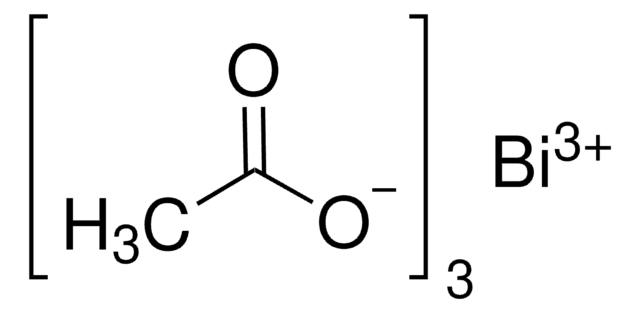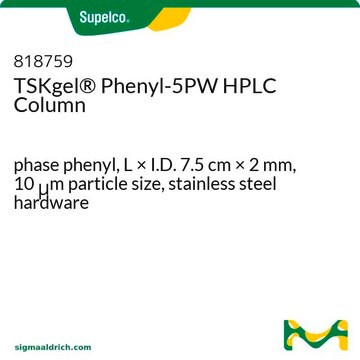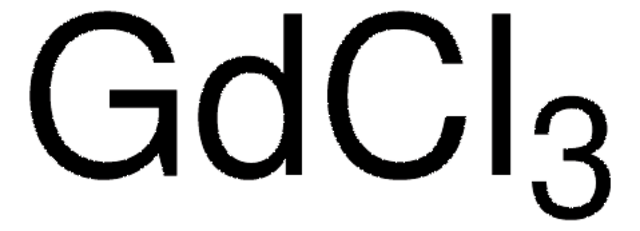808043
TSKgel® Phenyl-5PW RP (10 µm) HPLC Columns
L x I.D. 7.5 cm × 4.6 mm, phenyl phase
Synonym(s):
TSKgel® Reversed Phase HPLC Column (Polymer-based)
About This Item
Recommended Products
Product Name
TSKgel® Phenyl-5PW RP HPLC Column, phase phenyl, L × I.D. 7.5 cm × 4.6 mm, 10 μm particle size
material
stainless steel
product line
TSKgel®
manufacturer/tradename
Tosoh Phenyl-5PW, 08043
extent of labeling
1 meq/mL ligand density (estimate)
parameter
no limitation salt concentration
0-100% organic solvent
1.2 mL/min flow rate
30 bar max. pressure
4-60 °C temperature
technique(s)
HPLC: suitable
L × I.D.
7.5 cm × 4.6 mm
matrix
polymer particle platform
matrix active group
phenyl phase
particle size
10 μm
pore size
1000 Å pore diameter
operating pH
2-12
separation technique
reversed phase
Looking for similar products? Visit Product Comparison Guide
Related Categories
General description
- Octadecyl-2PW particles have 125Å pores
- Octadecyl-4PW particles have 500Å pores
- Phenyl-5PW RP particles have 1000Å pores
- Octadecyl-NPR particles are nonporous
Physical form
Legal Information
Choose from one of the most recent versions:
Certificates of Analysis (COA)
Sorry, we don't have COAs for this product available online at this time.
If you need assistance, please contact Customer Support.
Already Own This Product?
Find documentation for the products that you have recently purchased in the Document Library.
Our team of scientists has experience in all areas of research including Life Science, Material Science, Chemical Synthesis, Chromatography, Analytical and many others.
Contact Technical Service








